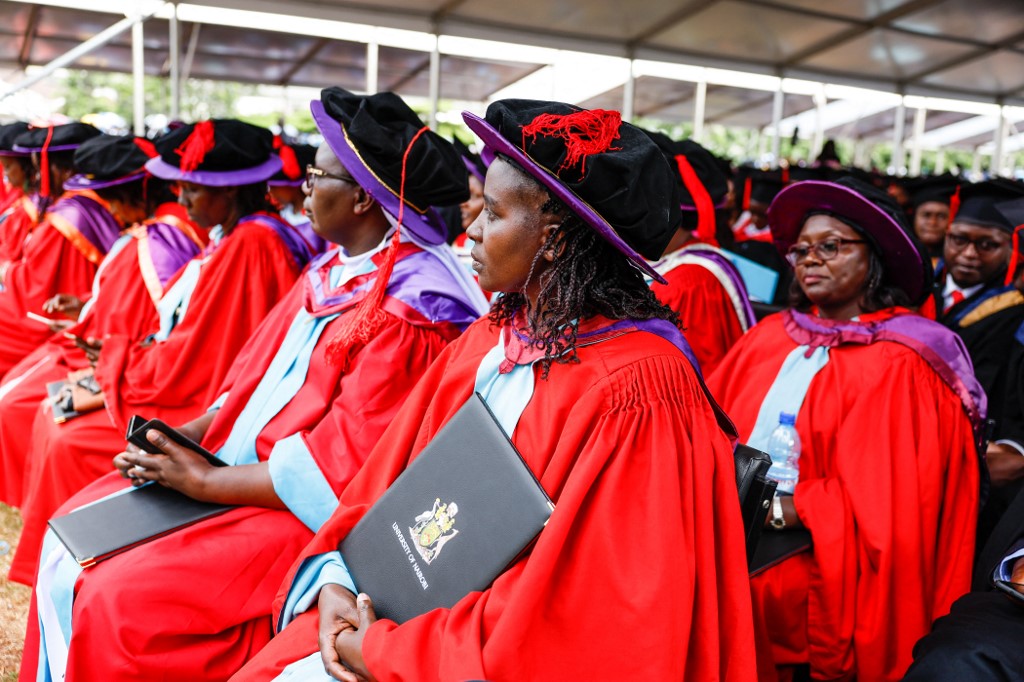
The best PhDs not only open the gates to knowledge but also offer some of the most generous stipends to help you achieve your dream. These stipends are not just numbers; they are the lifeboat allowing you to dive headfirst into your studies without worrying about the financial tides.
Think of the great minds that have treaded the PhD path before you – Marie Curie, Albert Einstein and Martin Luther King Jr. The secret to their success wasn’t just their brilliance; it was the support they received during their PhD journeys.
A stipend can be the catalyst for greatness, allowing you to focus on your research, collaborate with brilliant minds, and turn your academic dreams into reality.

The best PhDs give you more than just a qualification. It acts as a catalyst to greatness.
Types of PhD stipends
When it comes to stipends, there are two main types: financial and non-financial. Financial stipends are a helping hand for students, given without needing any specific work in return.
They appear as financial assistance on your statement at the end of the year.
On the flip side, there are stipends given in exchange for the work you put in at the university. These aren’t considered financial aid; instead, they’re like salaries
You might be wondering if your stipend is subject to taxation. Well, it depends on the type. If it’s a financial stipend, it’s generally not taxable. It’s like a gift to help you out.
However, if your stipend is in exchange for your university efforts, like work or research, it’s considered income and is subject to taxation.

The best PhDs have great stipends — which you should treat as a package. Source: AFP
PhD stipends: It’s a package
Your PhD stipend is made up of several important components to support you through your academic journey.
The living stipend is the main part, covering your accommodation, food, transportation and other daily needs.
It’s the primary source of financial support, and how much you get can vary based on factors like location, school, major and cost of living.
The tuition waiver or fellowship is a significant perk considering the often hefty costs of a PhD education, especially in fields like Chemistry or other STEM subjects.
Health insurance is another crucial part of the package, ensuring you have access to affordable medical care to keep you healthy and productive.
Then there’s the research grant or funding, providing extra money for things like textbooks, research materials, and conference fees.
As you delve into your academic journey, you might also find yourself as a teaching assistant (TA) or research assistant (RA), gaining work experience and building valuable professional connections.
So, your PhD stipend isn’t just about the financial support – it’s a comprehensive package designed to nurture and propel you forward in your academic pursuits.

The most powerful people in the world listen to those with the best PhDs. In this photo, India’s Prime Minister Narendra Modi and US First Lady Jill Biden listen to Anchal Sharma, a PhD candidate at the Indian Institute of Technology. Source: AFP
PhD stipends: More than just financial aid
It’s important to treat your PhD stipend as something more than just scholarship money or salary.
Consider investing in specialised training courses or workshops relevant to your field.
Use your stipend to enrol in programmes that deepen your expertise and introduce you to the latest trends.
Think of it as adding layers to your professional skillset, making you a sought-after expert in your field.
Another useful way to make good use of your PhD stipend is by attending conferences and networking events.
Allocate registration fees, travel and accommodation funds to immerse yourself in a sea of knowledge and connections.
Conferences are like treasure troves of insights, letting you learn from industry leaders and exchange ideas with peers.
Networking at these events can open doors to collaborations, job opportunities and a broader understanding of your field.
Your stipend is a golden ticket, allowing you to actively participate in your professional community and stay updated on cutting-edge developments.
Salary vs stipend
Your salary is like a regular paycheck you get for your job – it’s consistent, predictable and typically based on the hours you work or the tasks you complete.
It’s your stable income, like a steady river flowing into your bank account.
On the other hand, a stipend is more like a fund for a specific purpose, usually tied to education, research or training.
It’s not your regular 9-to-5 wage. It’s an allowance to support you in certain activities, such as pursuing a degree, researching, or attending professional development opportunities.
While a salary is your everyday bread and butter, a stipend is more like the extra toppings – there for a specific reason and not necessarily a routine.
So, who gets to hop on the stipend train? Usually, it’s candidates who are engaged in specific activities that need a bit of financial backing.
Students diving into research, interns honing their skills, or anyone pursuing specialised training are likely candidates.
Stipends often aim to support learning, growth or projects rather than being your everyday paycheck. It’s like a boost for those dedicating their time and effort to something beyond their regular work.
So, if you’re on a mission to deepen your knowledge, contribute to research or enhance your skills in a particular field, chances are you could receive a stipend.
When it comes to PhD programmes, the pay and stipends can vary. Generally, STEM (Science, Technology, Engineering, and Mathematics) PhD programmes offer higher stipends than other fields.
For example, in the US, institutions like MIT and Stanford are known for generous stipends for STEM candidates. These stipends often cover tuition, living expenses and even healthcare.
8 best PhDs that offer the highest stipends

The best PhDs can help you develop valuable transferrable skills which are valuble in the working world. Source: ETX
1. Stanford University
Stanford University is renowned for having the best PhD programmes in the world. This is mainly due to the fact that it offers one of the highest stipends globally, securing its position as a top-tier institution for doctoral candidates.
In the 2020/2021 academic year, PhD students at Stanford University received a stipend or teaching assistantship of US$45,850, marking it the world’s highest-paid PhD stipend.
Newly admitted PhD candidates automatically qualify for financial assistance for up to five years, provided they maintain a good academic record and meet the stipend requirements.
This support of fellowship salary, research or teaching assistantship showcases the university’s dedication to offering one of the most competitive PhD stipends.
Stipends are distributed shortly after students meet the minimum enrolment requirements, and any obligatory expenses, such as university housing rent, are deducted before the stipend is issued.

Earning a PhD can be costly both in terms of time and money, and it may take several years to complete a successful doctoral programme. Source: ETX
2. Princeton University
Embarking on a PhD at Princeton University promises academic excellence — and positions you among recipients of one of the highest-paid stipends in the US.
In February, The Daily Princetonian reported that the Princeton Graduate Students United (PGSU) has announced that the university will raise some graduate student stipends by US$5,000 in the 2023/24 academic year.
This made the annual stipend rate for this academic year between US$47,880 and US$50,400.
If you’re a new incoming graduate student, you’ll be paid your first fellowship stipend in full for the month of August.

The best PhDs can help students build relationships with professionals in their field, learn about job opportunities and gain insight into industry trends and best practices. Source: ETX
3. University Of South Carolina
The University of South Carolina is a top institution with one of the best PhD programmes, offering some of the highest stipends to its students.
From 2022, the university’s minimum total stipend has been US$34,000.
This makes the minimum monthly rate of at least US$3,778 for programmes that operate on a nine-month schedule and US$2,834 for those on a 12-month schedule.
There’s a “Provost Fellowship Top Off” valued at US$2,000, bringing a student’s stipend to at least US$36,000.
The university’s commitment extends to various scholarships, including the IRIX/David L. Coffen Fellowship and the Jerome D. Odom Fellowship, both in the field of chemistry.
The highest-qualified candidates are considered for Presidential Fellowships.
4. Rice University
Rice University stands out by offering departmental stipends for qualified PhD candidates — amounting up to US$40,000 per year.
Candidates earn this by working as a research/teaching assistant for an assigned faculty member while maintaining full-time student status and continue making satisfactory progress toward their PhD.

The best PhDs will help you learn about yourself, about others and about the world around you. Source: AFP
5. University of Houston
With an annual stipend of US$31,000 annually, the financial support provided at the University of Houston is substantial.
The Graduate Tuition Fellowship (GTF) further enhances the financial package for eligible students, covering tuition and fees, resulting in a net annual benefit of US$20,800.
Meeting a 3.00 grade point average and working as a graduate assistant are prerequisites for GTF eligibility, proving the university’s dedication to maintaining academic excellence among its doctoral candidates.
The fellowship covers nine semester credit hours (SCH) in the fall and spring semesters and six in the summers.
6. Ohio University
Ohio University’s financial support for PhD students is among the most generous in the country –surpassing over 1,000 other universities.
Here, stipends come in different forms. Examples are teaching assistantships, research assistantships and graduate assistantships.
At the School of Communication Studies, for example, eight to 12 new students are offered graduate assistantships that provide a full tuition waiver and a stipend of approximately US$16,100 per academic year.

A PhD degree holds high value in the job market as well as in the research world. Source: AFP
7. Boston University
At Boston University, all PhD students in good standing are guaranteed the following:
- five years of stipend support
- 100% tuition scholarship
- a health insurance credit
How much? That varies by PhD programmes but its website states a range from US$27,318 for eight months to US$40,977 for 12 months for the 2024/25 academic year.
8. Cornell University
For the 2023/24 academic year, Cornell graduate assistantship and fellowship stipends grew by 8%.
This made the minimum 12-month assistantship rate US$43,326 and increased the minimum nine-month academic year stipend to US$32,494.
Here, a graduate assistantship refers to “an academic appointment requiring 15 to 20 hours a week, averaging no more than 15 hours per week for the base stipend as established by the Board of Trustees.” They receive full tuition credit and a stipend.
Meanwhile, a fellowship refers to an “arrangement in which financial support is given to a graduate student to pursue his or her degree without any obligation on the part of the student to engage in teaching and/or research in furtherance of the university’s academic mission.”










